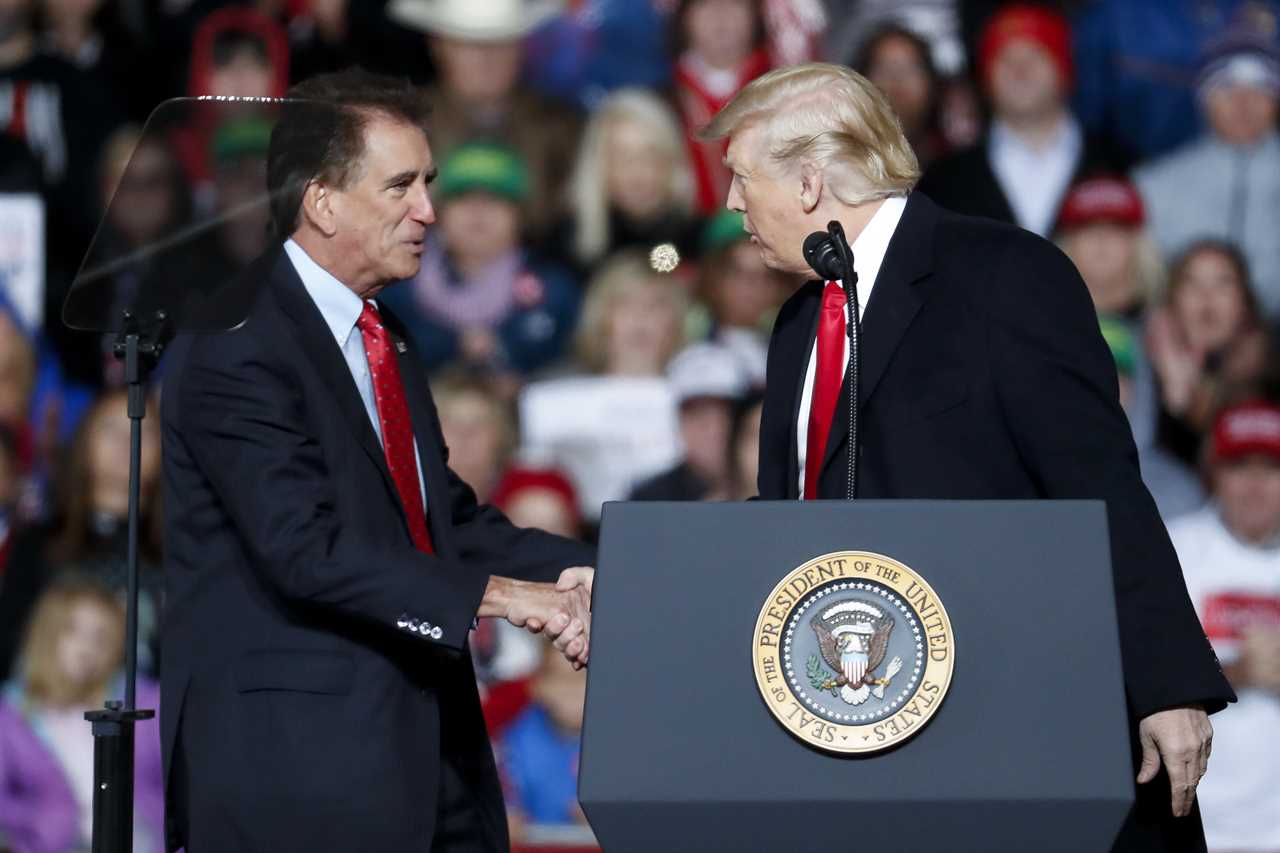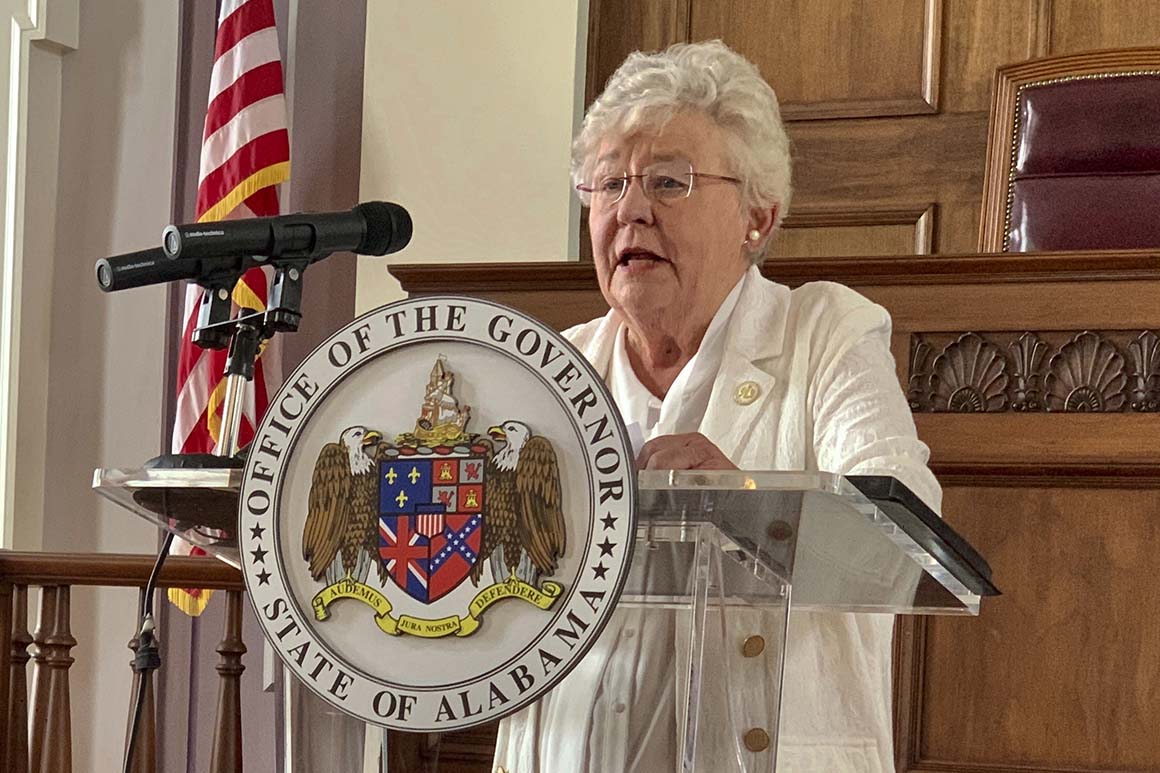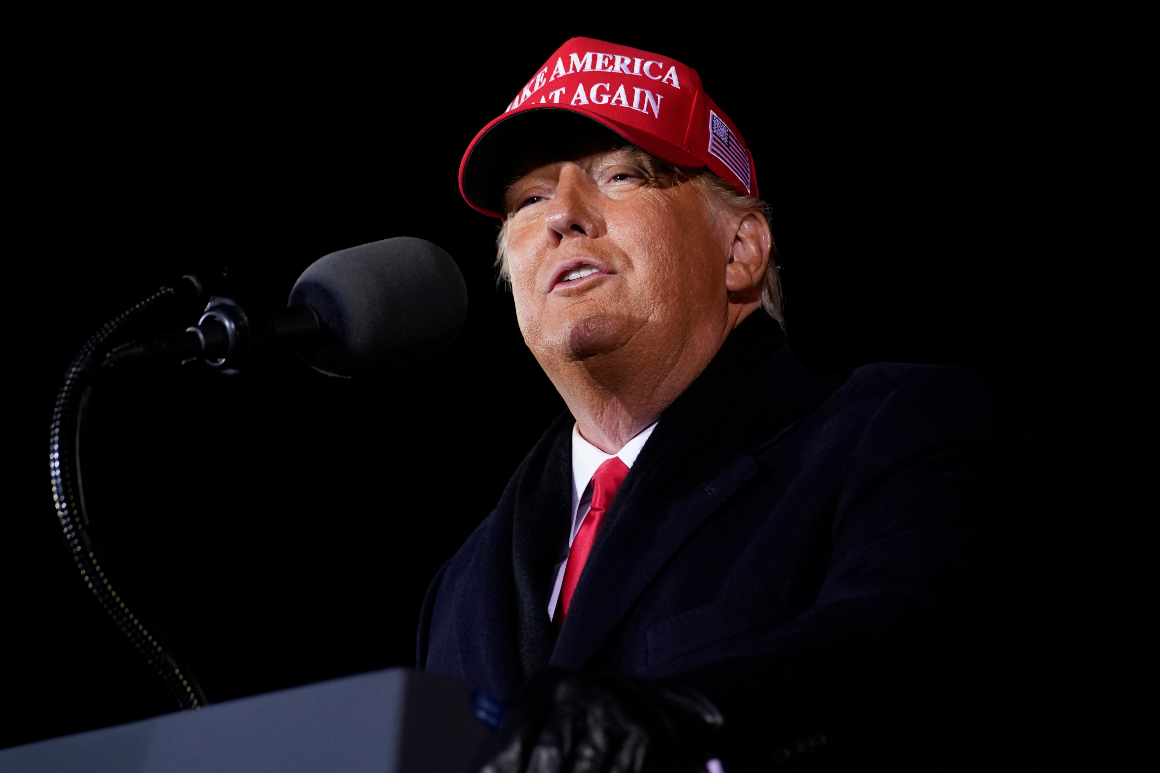
Republicans are embarking on a primary season that is poised to reshape the GOP for a generation, and that journey begins in Texas.
In less than two weeks, the first primary election of 2022 will take place in the nation’s second-most populous state, and it’s a blockbuster: The state’s Republican governor, attorney general and agriculture commissioner all face spirited challenges, as do several GOP House incumbents.
From there, fractious primaries will unfold across the electoral map in the coming months, cementing a more populist orientation for the GOP and Donald Trump’s status as the party’s lodestar, or setting a more traditionally conservative course.
These aren’t simple match-ups between Trump and anti-Trump forces, or isolated intraparty feuds. Safely ensconced Republican officeholders are being bombarded by challengers from coast to coast, in many cases spurred on by Trump directly. Redistricting and retirements have further scrambled the established order in many places, opening up seats and drawing fields filled with combative candidates eager to move the party in a different direction. Combine that with high levels of energy — and anger — in the party base, and it’s a recipe to remake the party from the ground up.
“Primaries are always fucked up to some degree, but it’s different now,” said John Thomas, a Republican strategist who works on House campaigns across the country. “There’s more self-hate than there was before. Ten years ago, we’d argue about who was more pro-gun, who was more pro-life. Now, my clients are going RINO hunting, which is a level of disdain that was not there before in our party.”
Much of the churn is due to forces unleashed by Trump. The defeated president’s iron grip on the party and level of involvement in midterm primaries is unprecedented in modern history, and he continues to advance his lie that the 2020 election was stolen. The Republican electorate overwhelmingly agrees with him, furious at Republican politicians who resisted overturning the election. Not only do Republican primary voters nearly uniformly believe that the country is heading in the wrong direction, a common sentiment for the out-of-power party, but they are seething — about the last election, about Joe Biden’s Washington, about two years of a pandemic.
“The confluence of the pandemic, the manner in which Trump practiced his politics — just pure, in your face — you throw in a healthy dose around what is being taught in our schools, it’s just a cocktail of people being really just mad, beyond the pale of what I would say is traditional political discourse,” said John Watson, a former chair of the Georgia Republican Party. “There’s not another moment in my life that you just feel viscerally that the country is in many ways at its own throat.”
Evidence of the party’s unrest is everywhere. Nearly a half-dozen GOP governors are facing competitive primary challenges, ranging from Ohio, where Gov. Mike DeWine is facing a primary challenge from former Rep. Jim Renacci, to Idaho, where conservative Gov. Brad Little is being challenged by his lieutenant governor, Janice McGeachin, who is trying to outflank him on the right.
In the South, Alabama Gov. Kay Ivey haseight Republicans running against her, including at least two with significant resources. Next door in Georgia, former Sen. David Perdue, with Trump’s support, is running to unseat Georgia Gov. Brian Kemp. In Texas, Trump’s endorsed candidate, Gov. Greg Abbott, faces multiple challengers from his right, including Allen West, the former Florida congressman and former chair of the Texas Republican Party.

“Twenty twenty-two is a unique point in time,” said Steve Stivers, the former congressman from Ohio and former chair of the National Republican Congressional Committee. “It’s the confluence of a redistricting year, it’s the precursor to a big presidential election. We have a president with pretty unpopular numbers, but a Republican Party that has some infighting.”
As a “prelude” to the party’s presidential nominating contest in 2024, he said, the midterms are where “we’ll sort of see where the party’s heading.”
Congressional incumbents aren’t immune to the convulsions, despite expectations the party will make big gains in November. In Alaska, state Republican Party leaders have endorsed a primary challenge to the state’s incumbent senator, Lisa Murkowski, while GOP officials in Wyoming have disowned their incumbent congresswoman, Rep. Liz Cheney.
“This is a different midterm,” said Kirk Adams, a Republican former Arizona state House speaker. “From a Republican Party perspective, it’s what does a post-Trump presidency Republican Party look like?”
Few Republicans have been spared from the unrest, even in some of the reddest states. In Oklahoma, the state Republican Party chair is endorsing a primary challenge to GOP Sen. James Lankford, who infuriated Trump by voting to uphold the results of the November election. In Arkansas, Dick Uihlein, one of the GOP’s biggest donors, hasput $1 million into a campaign to defeat incumbent Sen. John Boozman.
“We’re getting tons of people, tons of people who are running in primaries,” said Juliana Bergeron, an RNC committee member from New Hampshire. “People who have never run for anything before are running in primaries. And we go shooting ourselves in our foot because, with people [some Republicans] don’t like, we go looking for primaries.”
In some parts of the country, the decennial redistricting has made avoiding intra-party conflict all but impossible, pressing Republican lawmakers into one another’s districts in Illinois, Michigan and West Virginia, where Republican Reps. Alex Mooney and David McKinley are brutalizing each other on TV.
Then there are the open races, where traditional ideological divisions within the party aren’t the determinative factor. In Wisconsin, state Rep. Timothy Ramthun announced his candidacy for governor this past Saturday,running explicitly on an election conspiracy platform. In Arizona, the frontrunner in the Republican primary for governor, Kari Lake, falsely insists Trump won the state and has said she would not have certified the 2020 election.
“Arizona’s high noon for determining the future of the party, whether it’s a Trump brand of conservative or a more traditional brand of conservativism,” said Rory McShane, a Republican strategist working on House and state races in the state.
In part, this year’s abundance of primary challenges is an exercise in opportunism. Trump’s sudden and rapid rise in politics has encouraged other non-office holders to run for lower office, while a favorable midterm election climate this year for Republicans — with historical trends and Biden’sdismal public approval ratings on their side — has made the chance of winning in a general election better than it has been since before Trump took office.
“If you’re smart, you know winning the nomination in this cycle is 90 percent of winning,” said Dave Carney, the Republican strategist who advises Abbott.

For a Republican who wants to hold office, he said, a primary nomination is “now worth fighting for.”
The results of the primaries will be interpreted, most of all, as a measure of Trump’s influence over the party. He hasendorsed roughly 100 candidates so far in the current election cycle, ranging from Senate and gubernatorial contests to state legislative and local races.
But the primaries will also test the durability of the Republican coalition that Trump shaped as a candidate and as president — a political legacy marked by significant losses for the GOP in America’s suburbs, but gains among white working-class voters and, to a lesser extent, Latino voters.
More than 253 women and 228 people of color are running as Republicans for Congress, according to the National Republican Congressional Campaign Committee — more Republican women and Hispanic people running than in any previous cycle. How those candidates fare in primaries this year, in the first election cycle since 2016 without Trump running or in the White House, may solidify the demographic shifts of the Trump era — or undo them.
“Every time we go through a new decade, there’s a realignment of the electorate,” said Randy Evans, a Georgia lawyer who served as Trump’s ambassador to Luxembourg. “I can remember when the elites in the country clubs were principally Republicans, and when blue collar workers were principally Democrats, and now Trump has taken the party so that it’s the party of blue collar workers … We’ve yet to see how, as an electorate, where everything will land.”
The outcome will put a stamp on the party regardless of how Trump’s endorsed candidates perform in November or whether he runs for president again in 2024. That’s one lesson from the tumultuous 2010 midterms. While the tea party ultimately faded out, veterans of that class included Sens. Marco Rubio and Rand Paul, both of whom went on to run for president in 2016, as well as Kristi Noem, Tim Scott and Mike Pompeo, three politicians who may run for president or contend for vice president in 2024.
Twelve years after the 2010 election, said Jay Williams, a Georgia-based Republican strategist, “I think you’ve got a bunch of these folks out there being more willing to just like be flamethrowers than they used to be, and you also have the dynamic of, there’s not as much of these corporate Republicans anymore.”
In the primary landscape of 2022, he said, “You can’t run one of these traditional campaigns where you’re just, ‘I want to close the border and lower taxes and stuff … You’ve got to focus on the anger — election integrity, borders and Covid mandates … And you’ve got to be very aggressive about it.”
----------------------------------------
By: David Siders
Title: GOP plunges into season of ‘self-hate’ that will rewire the party
Sourced From: www.politico.com/news/2022/02/17/primaries-redefining-post-trump-republicans-00009337
Published Date: Thu, 17 Feb 2022 04:30:00 EST






